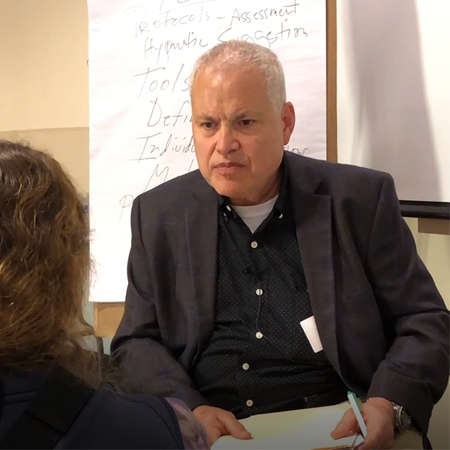The question of whether paying out-of-pocket for psychotherapy is more beneficial than using your insurance is nuanced. While evidence does not universally state that one is “better” in all cases, research and clinical experience point to several advantages associated with private-pay therapy, particularly when it comes to quality, privacy, choice, and long-term outcomes. Here’s a breakdown of what the evidence and expert consensus suggest:
Greater Client Choice and Fit
Research shows that a good therapeutic alliance is the best predictor of positive outcomes. When you pay privately, you have more freedom to choose a therapist who aligns with your needs, values, and therapeutic goals (e.g., EMDR, hypnotherapy, depth therapy, somatic work, etc.). Insurance panels often limit this choice, forcing people to select from a narrow network.
Greater Privacy and Confidentiality
When therapy is paid out-of-pocket, no mental health diagnosis is required to receive treatment. Insurance reimbursement requires a diagnosable mental disorder (e.g., generalized anxiety disorder, major depression), which then becomes part of your permanent medical record. This can affect future employment, security clearances, life insurance, or disability claims. Private pay protects you from medicalization and stigma.
More Time and Flexibility in Treatment
Insurance typically limits the number of sessions or length of sessions (usually 45-50 minutes). Private-pay therapy allows for longer or more frequent sessions, greater flexibility in scheduling, and long-term or more intensive, depth-oriented therapy (e.g., trauma, personality patterns, existential work). Research has found that intensive hypnotherapy and psychodynamic therapy (often not covered by insurance) have lasting effects superior to short-term manualized treatments.
Higher-Quality, Specialized Care
Many of the most experienced and in-demand therapists do not take insurance, often due to low reimbursement rates, administrative burdens, as well as ethical concerns about misdiagnosing to get coverage. As a result, when you pay for therapy privately, you gain access to more seasoned clinicians and specialists in hypnosis, hypnotherapy, trauma, attachment, EMDR, couples work, etc. You’re investing in expertise that might not be available through insurance.
Client Motivation and Investment
When you pay out of pocket, you tend to be more engaged and committed to therapy. This “skin in the game” effect can lead to better attendance, stronger therapeutic alliance, and more meaningful outcomes. Studies in health economics show that higher personal financial investment often correlates with better health behavior and adherence.
Counterpoint: Cost and Access
Of course, insurance makes therapy accessible to many people who otherwise couldn’t afford it. And many excellent therapists do accept insurance. But when feasible, private pay offers clear qualitative and clinical advantages.
Summary: When You Pay Privately for Therapy, You Get…
| Advantage | Private pay | Insurance |
| Choice of therapist | Full | Limited |
| Privacy and confidentiality | Strong | Compromised |
| Session length/flexibility | Flexible | Rigid |
| Intensive depth therapy | Supported | Restricted |
| Diagnosis required | No | Yes |
| Client motivation/investment | Often high | Not as high |
| Access to specialized care | High | Variable |
I can be reached at www.BruceEimer.com or via email at bruce@bruceeimer.com or you can call 561-377-1039 for a free 15-minute consultation.
If you would like to learn more about this practice or would like to schedule a free consultation appointment, visit us online or call our office today at (561) 377-1039. You can schedule a 15-minute free consultation here.
Dr. Eimer proudly serves patients in West Pam Beach, Wellington, Lake Worth, Boynton Beach, Delray Beach, Boca Raton, Deerfield Beach, Fort Lauderdale, Miami, and surrounding areas.
Join my email list here.
Post Written by Bruce Eimer, Ph.D.





